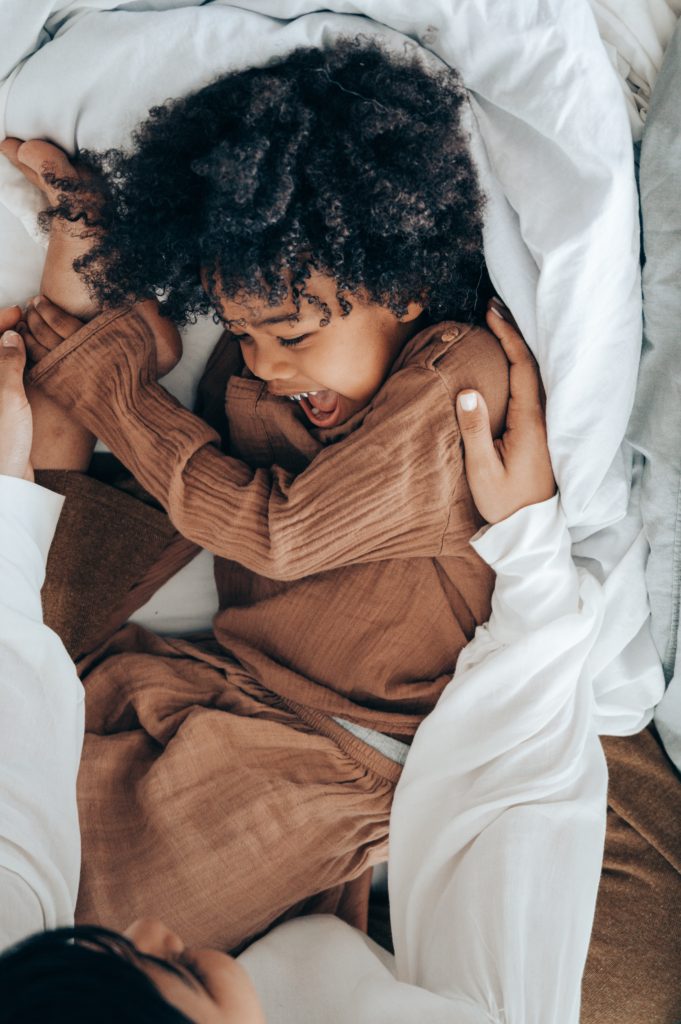Childhood Anxiety

Anxiety is normal in human beings. We all at some point become anxious. Being anxious is a normal part of development. Its part of what helps to keep us safe. Anxiety can however become problematic. As parents it is important that we help our children to manage anxiety.
What are the signs of anxiety in children?
According to the NHS in the United Kingdom a child may be dealing with anxiety if they display the following
- become irritable, tearful or clingy
- have difficulty sleeping
- wake in the night
- start wetting the
- have bad dreams
In older children you may notice that they
- lack the confidence to try new things or seem unable to face simple, everyday challenges
- find it hard to concentrate
- have problems with sleeping or eating
- are prone to angry outbursts
- start avoiding everyday activities, such as seeing friends, going out in public or attending school
- This is by no means an exhausted list. However it is important to pay attention if these signs appear in your child

Now that you know what to look for you must be wondering where to go from here.
Below are a few ideas that can make a real difference:
1. Talk to your child about anxiety. Explain to them what happens when they are feeling anxious. Anxiety often brings with it very physical feelings and it can be frightening to a child as they have no idea what is happening.
2. Speak to your child about what worries them. Not just when they seem worried. Be empathetic. Never belittle their worry but do reassure them that things will be ok.
3. Help them to identify their anxious feelings so that they recognise when it is beginning to happen.
4. Encourage your child to find solutions to their problems. If they raise a worry with you, then it is helpful to sit with them and find a solution. For example, if they are afraid to attend a friends birthday party. Instead of choosing the reaction of ‘flight’ help you child stand and fight that anxiety by figuring out exactly why they are anxious about this and what it is that they can do to fix it. Your child may have a legitimate reason and so the solution may be that it should definitely not be an option. However, it may just be that they could (with your help) figure out a simple and effective solution.
5. Explain to your child that the anxiety won’t last forever. That it is like a wave that starts off small, grows in size and intensity and then reduces to nothingness.
6. Teach your child breathing exercises to get through the peaks and troughs of their anxiety. A simple exercise is to breathe in through the nose for three counts and out through the mouth for three counts.
7. If your child is concerned about an issue like presenting at school or maybe making new friends. Find age appropriate material like books, games or videos where these concerns are explored.
8. Teach your child to practice mindfulness and positive thinking with. Visualisation is also an effective method to help navigate through an anxiety attack.
9. Encourage your child to keep a journal where they write about their worries, solutions, and wishes. A place where they also develop a practice of gratitude. If your child always makes a note of what made them anxious it will help to build self-awareness, and this could in turn allow you child to gain control over their anxiety
10. Create a worry jar or box with your child. Your child can write each worry down and place it in the box in a place where it cannot be seen. Decorate the box or jar with your child. Encourage them to leave the worry in the box. Allocate an allotted time to spend talking with your child about their worries and finding solutions for them. Remember to listen and be empathetic. Avoid having these discussions close to bedtime.
This is by no means an exhaustive list.
When to Seek Additional Help
Anxiety in humans is normal. It serves a similar purpose as fear and is designed to help keep us safe. However, anxiety can become problematic. If your child’s anxiety is persistent and if it interferes with their and your family’s lifestyle and learning, then it is important that you recognise that it is time to seek professional help. Your GP, a paediatrician, or a mental health professional will be able to help and or signpost you to the people who can.
